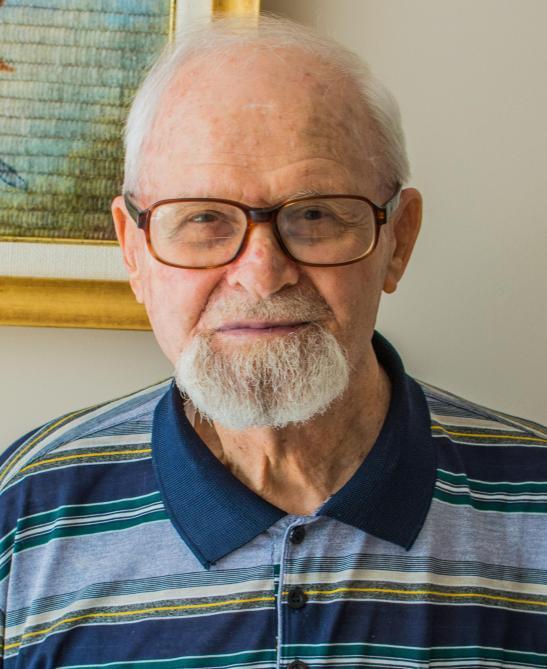Daniel Comboni
Comboni Missionaries
Institutional area
Other links
Newsletter
In Pace Christi
Anselmi Romualdo
He was born at Selva di Progno, in Verona province, on 7 February 1930. He did the novitiate at Gozzano where he took first vows on 9 September 1953. He did the scholasticate in Viseu where he took perpetual vows on 9 September 1955 and was ordained priest on 25 March 1956.
Fr. Romualdo breathed his last at the age of ninety. He had worked in Mozambique for more than half a century, from 1959 to 2014, with a short interval of five years spent in Padua doing mission promotion. Towards the end of his life, every time I went to visit him in Castel d’Azzano, I noticed he was always happy and content with his nostalgic (‘saudade’) memories of his beloved Mozambique. Fr. Romualdo was one of those missionaries, almost all of whom have gone to God, who lived in Mozambique in times of enormous change: during the time of Portuguese colonial government, the struggle for independence and the Marxist-Leninist FRELIMO regime, the sixteen-year-long civil war and the coming of peace. Those were difficult times that demanded a strong missionary spirit and a vocation deeply rooted in the Lord of History. An indispensable aid to becoming part of that mission was knowing the languages well – Portuguese and Macua, the local language which Fr. Romualdo spoke fluently.
After a couple of years in Portugal, spent learning Portuguese and helping with the new Comboni presence in Lisbon, he left for Mozambique where he was assigned to the first Comboni mission in the country, Mossuril, on the shore of the Indian Ocean, close to the Isle of Mozambique. The mission area was prevalently Moslem, as it is to this day and the missionary work of evangelisation, by no means easy, was centred mainly on schools for education to which all who wished were admitted, regardless of whether they were Christian or Moslem.
After the country gained independence in July 1975, Fr. Romualdo joined the government school at Nieta mission where everything had been nationalised: the school, the church, the house of the missionaries and all the buildings. I remember meeting him at that mission, the only Comboni present apart from the community of Comboni Sisters. It was the time of the “equipas missionárias”, that is communities of Comboni Missionaries who, together with the Comboni Sisters or of other Institutes, following the example of the primitive Christian communities, put all their goods in common while praying and planning their pastoral work together.
Fr. Romualdo worked in that mission for twelve years without interruption, while civil war was raging. The school had become his passion and was his main mission. He got on well with the students to whom he sought to impart the values of the Gospel by means of instructional films he would show at weekends in the open, using the large wall of the church, then being used as a dormitory, as a screen. After his transfer to another mission, Alua, he also worked there in the government school, continuing with the system of integral education, presenting Gospel values to the students despite the Marxist-Leninist system of government. At Alua, apart from the school, Fr. Romualdo continued with the pastoral centre of the Erati zone (the missions of Alua, Namapa and Nacaroa), where lay people engaged in various pastoral ministries were trained and prepared for their specific work: liturgy of the Word, catechesis, funerals, the promotion of women, aid to the poor, visiting the sick and so forth.
During the period when he was working in the school, he would dedicate weekends to direct pastoral ministry, visiting the Christian communities together with the Sisters, spending time with the people and celebrating their joy in the faith.
Fr. Romualdo was a man of few words but he was a peaceful man, obedient and ready to provide whatever service was asked of him, working with dedication and competence. He was also very practical. At a time when resources were in short supply, especially during times of war, the mission required that the missionaries learned to make do with what they had and to see to various tasks: maintaining the vehicles, keeping the water supply working, doing repairs and doing construction work, etc. Fr. Romualdo was good at these things and in helping with the building of schools and chapels run by the mission. He also worked with passion and precision.
Reflecting on Fr. Romualdo’s life, there came to my mind a poem by Rev. Tonino Bello “Maria, donna feriale” (Mary, the Everyday Woman) inspired by the Vatican reference to Our Lady: Mary lived on this earth the same ordinary life as everyone else, full of concern for the family and her work (AA 1). For fifty years Fr. Romualdo made common cause with the people, with the population of Mozambique, with the Local Church and with his confreres, both in time of peace and in time of war, never giving up. Devotion to Our Lady, especially Our Lady of Medjugorje was hugely present in his life. The attitudes of Mary, the ‘everyday woman’, sum up his life which he lived so naturally and with so much concern for the good of the people and those living around him, inspiring confidence, faithfulness and hope, even in times of great adversity.
(Fr. Jeremias dos Santos Martins, mccj)

